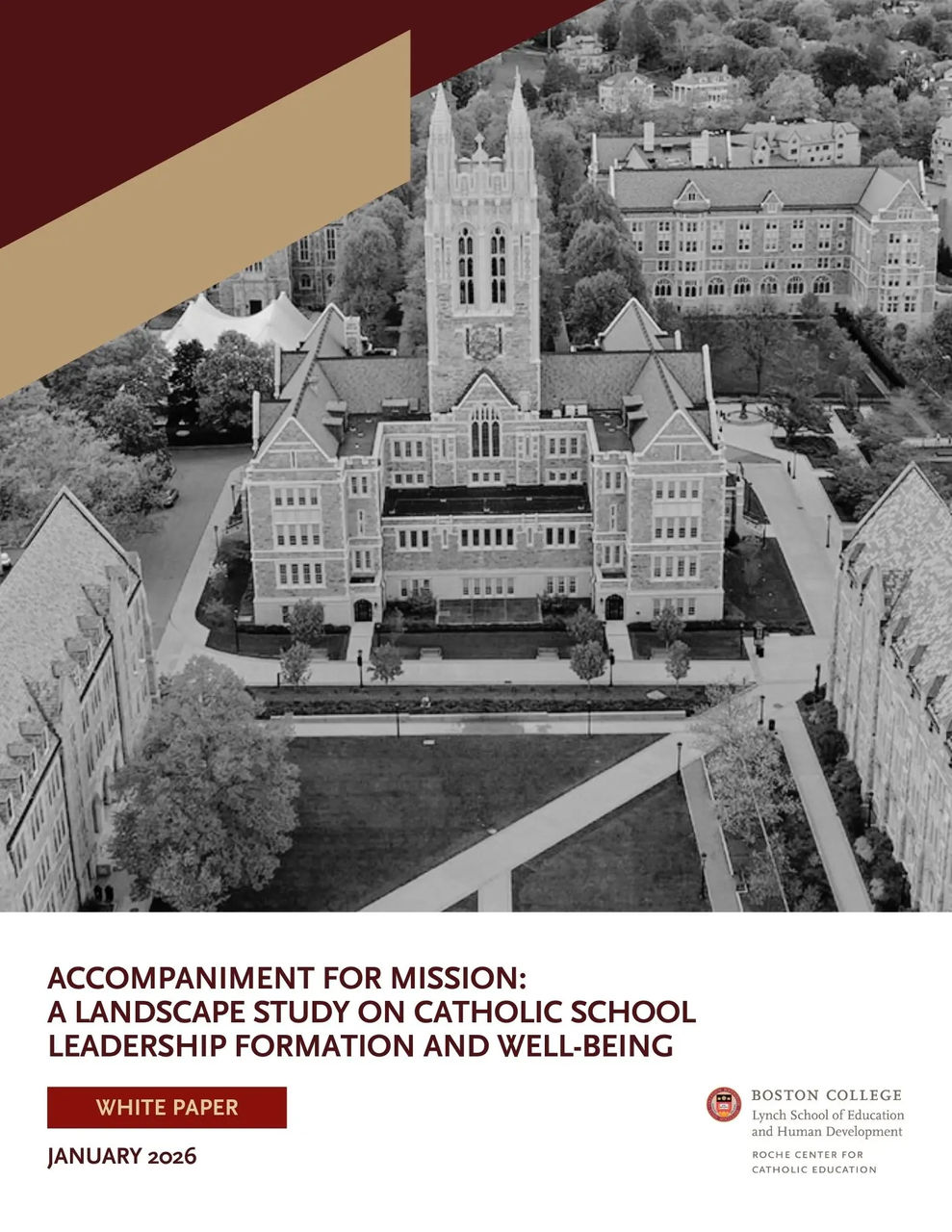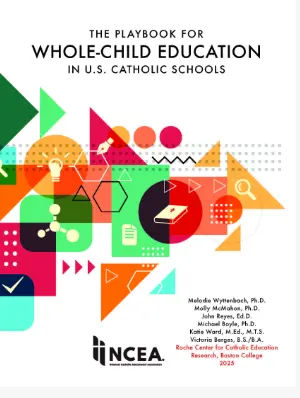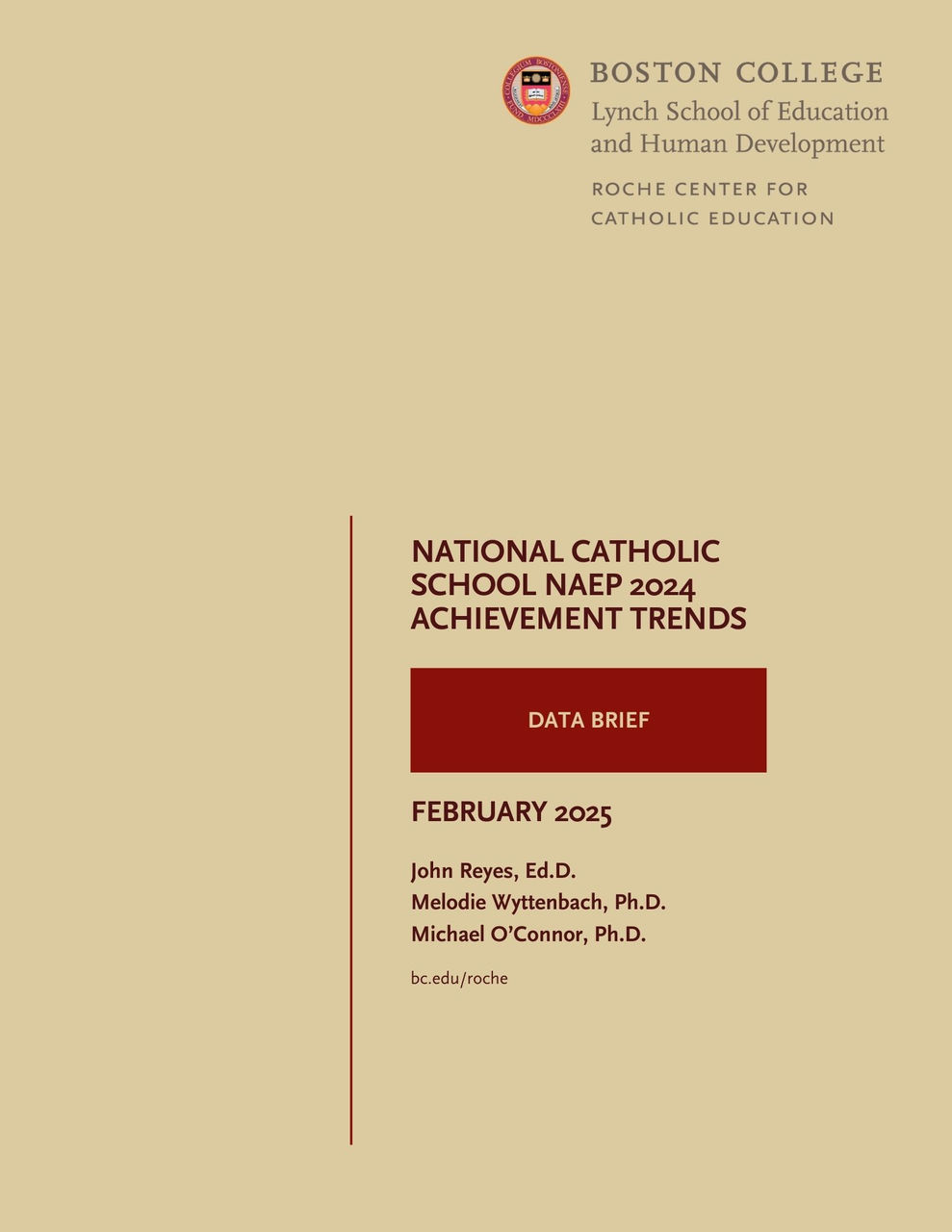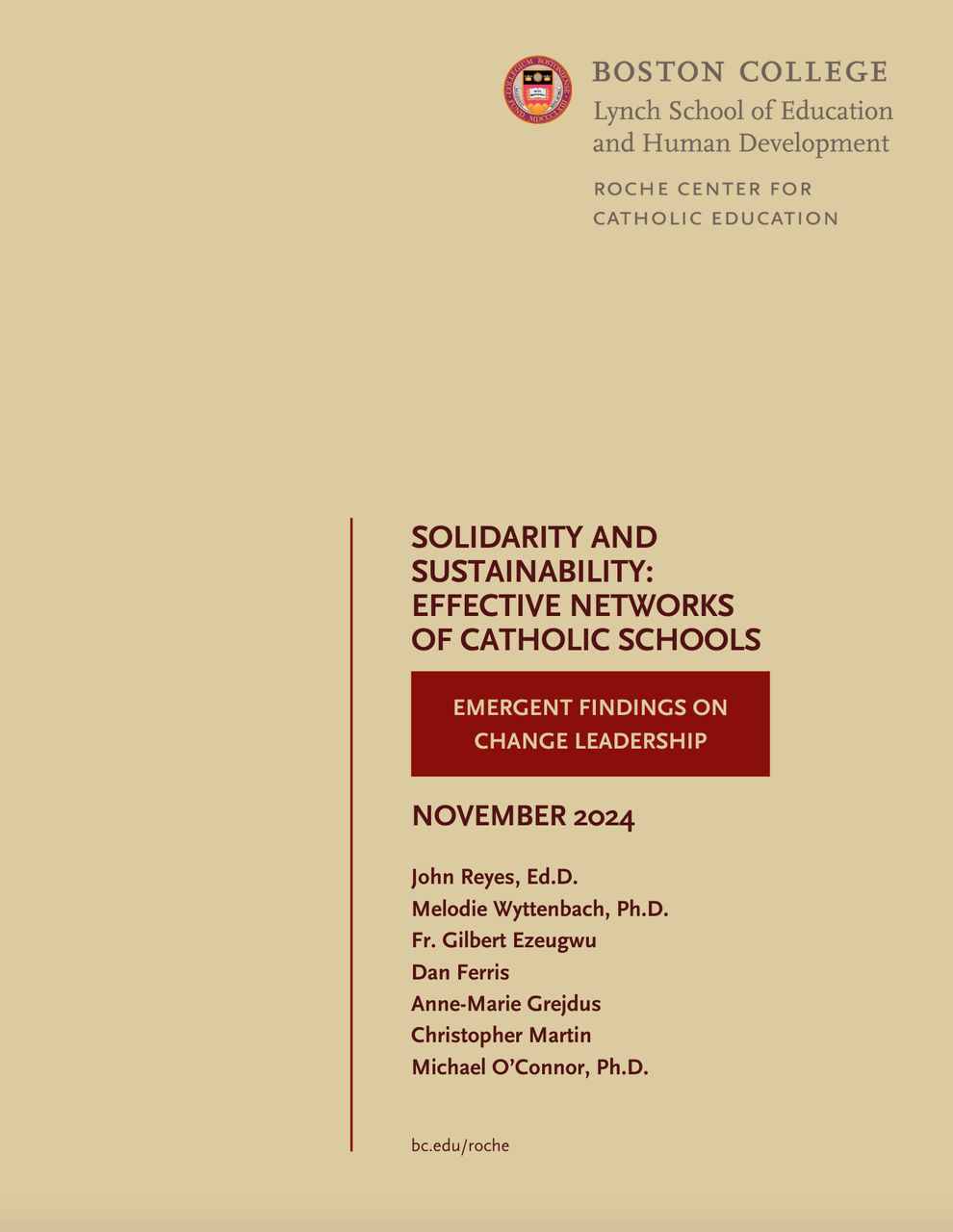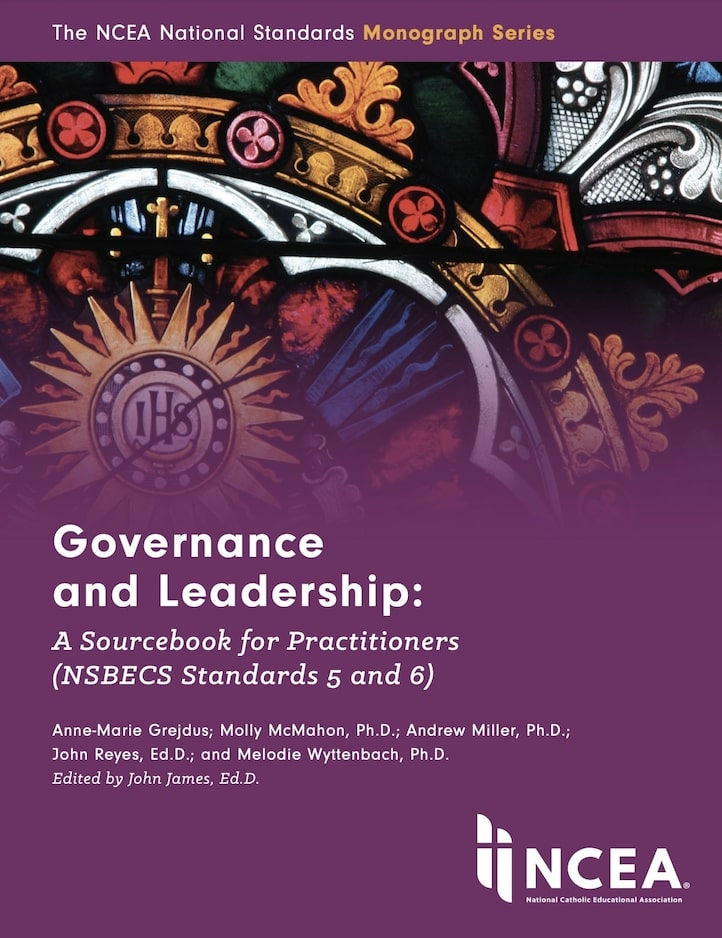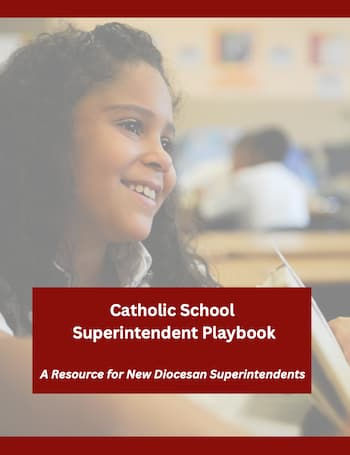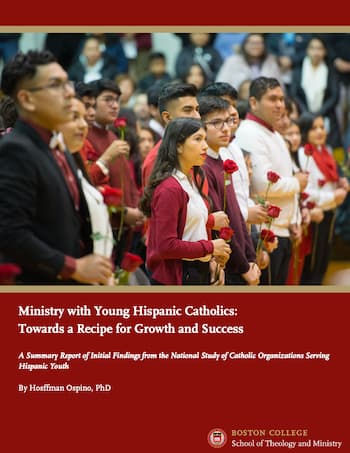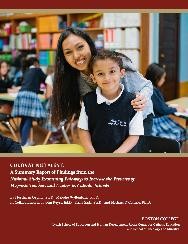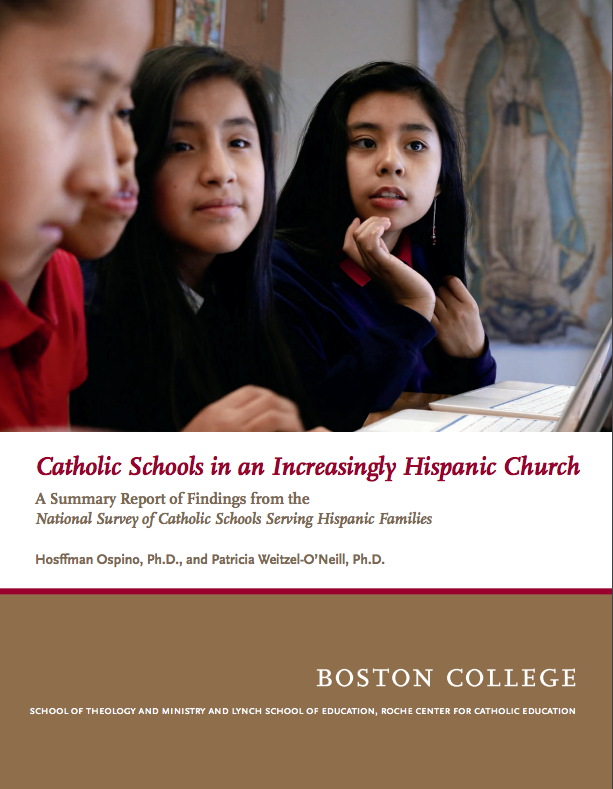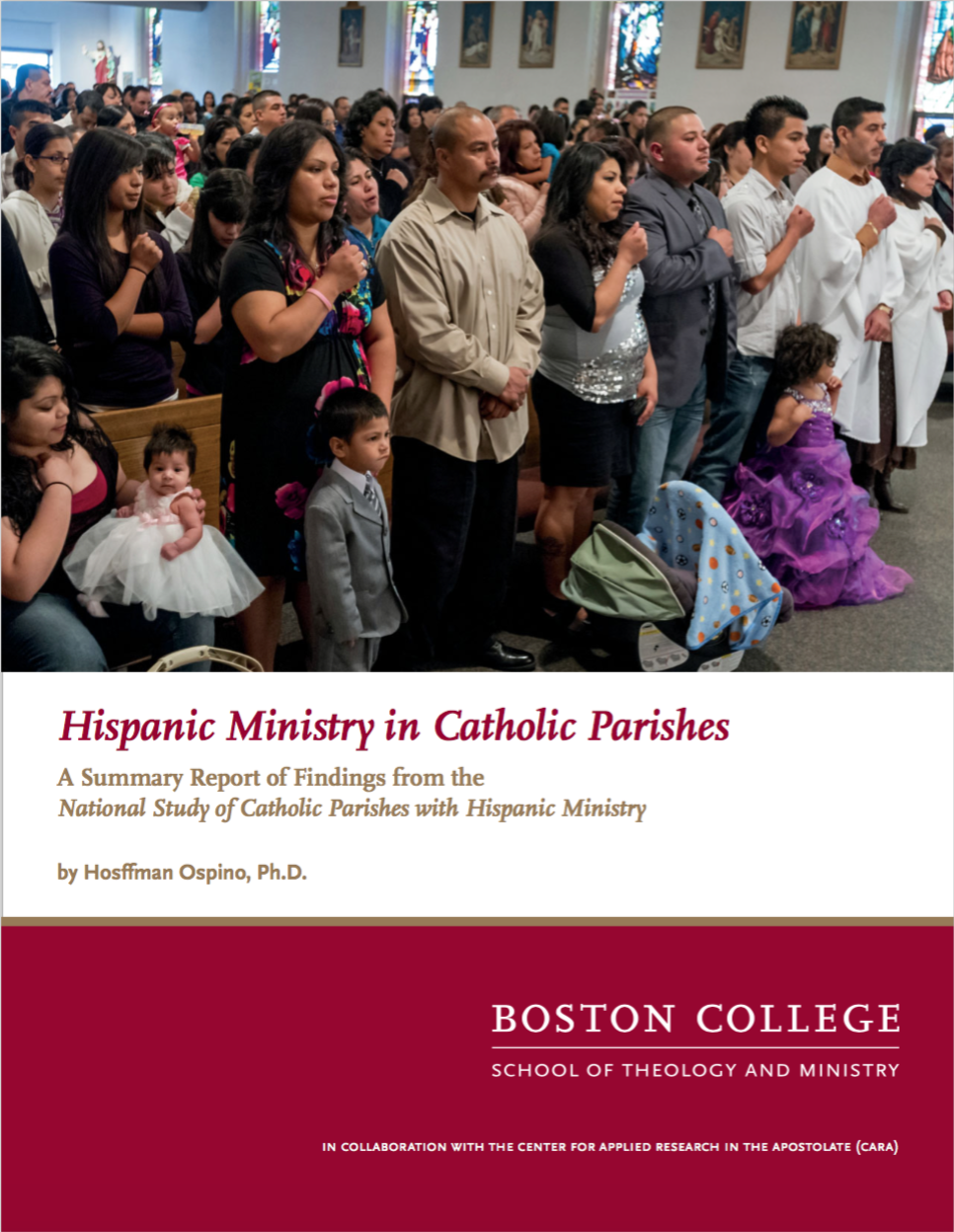Publications
Accompaniment for Mission: A Landscape Study on Catholic School Leadership Formation and Well-being (White Paper)
Of the numerous challenges today’s Catholic school leaders face, one of the most significant is how the dynamics of their own emotional health and well-being impact the work they do within the school communities they lead. Professional burnout amongst Catholic professionals has drawn increasing attention in recent years, often resulting in disaffiliation, cynicism, disillusionment, and isolation (Coda, 2019; Oakes, 2019). In the global context of an age of poly-crisis – a term coined by Harvard Professor Michael Lawrence which refers to a time of global crisis that arises when one or more fast-moving trigger events (think a natural disaster or a mass shooting) are combined with slow-moving stresses (wars, a pandemic, or how AI has emerged over time and disrupted areas like education) – the attentiveness to the formation and well-being of Catholic school leaders is instrumental to sustaining the work of Catholic education.
The data consists of a nationally representative sample of 167 leaders from 28 states across the United States (US), averaging 11 years of leadership experience, and a balance of elementary and secondary school leaders, male and female leaders, generational representation, and length of tenure within their current school settings. This represents one of the first large-scale studies of the formation and well-being of Catholic school leaders within the US, and is significant for providing a benchmark of Catholic school leadership today.
The Playbook for Whole-Child Education in U.S. Catholic Schools
The Playbook for Whole-Child Education in U.S. Catholic Schools, authored by Roche Center team members and collaborators, offers an holistic approach is to ensure that Catholic school students receive a well-rounded education that addresses their diverse needs, promotes their overall well-being and endows them with the requisite knowledge, spiritual depth, and moral grounding essential for success across various dimensions of life. Published by the National Catholic Educational Association (NCEA), the Playbook can be purchased on the NCEA website.
In celebration of the release of The Playbook for Whole-Child Education in U.S. Catholic Schools, the Roche Center partnered with NCEA to offer a series of blog posts and webinars highlighting the domains and book topics. Visit the Roche Center website to learn more about the Whole-Child Education research project, view recordings of previous webinars, and stay up-to-date on additional events and publications.
National Catholic School NAEP 2024 Achievement Trends - Data Brief
The Roche Center has released a data brief analyzing the performance of Catholic schools nationwide on the most recent National Assessment of Educational Progress (NAEP) 2024 scores, often referred to as The Nation’s Report Card and a notable indicator of educational effectiveness and policy impact across educational sectors. Our report analyzes this most recent data to better understand the long-run effects of the pandemic and Catholic schools’ response. We invite you to read the report, reflect on its findings, and share with other leaders and educators within your local Catholic schools’ context in pursuit of excellence and equity for Catholic school students and families.
Solidarity and Sustainability: Effective Networks of Catholic Schools - White Paper on Change Leadership
Catholic school networks have the promise and potential to unlock and operationalize the benefits of the Catholic social teaching of solidarity for the flourishing of Catholic schools. This white paper details preliminary findings from the Roche Center's study on networks of Catholic schools in the United States, synthesizing insights from 25 Catholic school networks including dioceses/archdioceses, regional consortia, special interest networks, school management organizations, and religious order-sponsored school networks. The emergent themes discussed in the paper address the considerations of how networks of Catholic schools promote change and transformation in their member schools, and provide emergent insights on how the structure and function of networks bring to life solidarity and interdependence as a key asset to the present and future of Catholic schools.
Governance and Leadership: A Sourcebook for Practitioners - The NCEA National Standards Monograph Series
The Governance and Leadership monograph, authored by members of the Roche Center team and published by the National Catholic Educational Association (NCEA), draws upon the latest research and practical knowledge pertaining to Standards 5 and 6 of the National Standards and Benchmarks for Effective Catholic Elementary and Secondary Schools, Second Edition (NSBECS). The text is a part of The NCEA National Standards Monograph Series. Access to download the monograph is free for NCEA members or can be purchased.
Catholic School Superintendent Playbook: A Resource for New Diocesan Superintendents
Like many system-level leaders, you may be moving from a school environment where you are a decision-maker to a world where you are a coach, planner, connector, cheerleader, teammate, and occasionally an EMT! Or perhaps you are already in the central office, but moving into a new leadership role. Whatever professional path you have taken to the superintendency, you have accepted a role akin to the commissioner of the baseball league; you want to help ALL the teams win!
In an effort to prepare you for this new role, current superintendents and leaders of the Boston College / Catapult Learning superintendent professional learning community have put together this playbook which contains: 1) General discussion topics, 2) Topics by key relationship, and 3) Case studies.
Ministry with Young Hispanic Catholics: Towards a Recipe for Growth and Success
As the number of young Hispanic Catholics grows in every corner of the country, Catholic structures and organizations have been rather slow adjusting to that presence. Are our current structures and organizations for ministry with young Catholics aware, prepared and willing to adjust to meet the spiritual needs of Hispanic young people? Are Catholics ready to create, when necessary, and support new structures and organizations that have the wisdom and commitment to work with Hispanic youth and young adults?
Dr. Hosffman Ospino of the School of Theology and Ministry and his research support team respond to these questions in this report — Ministry with Young Hispanic Catholic: Towards a Recipe for Growth and Success. A Summary Report of Initial Findings from the National Study of Catholic Organizations Serving Hispanic Youth.
Cultivating Talent: A Summary Report of Findings from the National Study Examining Pathways to Increase the Presence of Hispanic Teachers and Leaders in Catholic Schools
In response to the present need to ensure equitable access, representation, and educational outcomes for Hispanic students, families, and educators, our research team at Boston College, led by Dr. Hosffman Ospino of the School of Theology and Ministry and Dr. Melodie Wyttenbach of the Roche Center for Catholic Education, conducted a comprehensive study of Hispanic leaders and teachers in Catholic schools in the United States. Cultivating Talent: Hispanic Educators in Catholic Schools details the context, framework, process, findings, and results of this groundbreaking overview of an important sector of the Catholic education workforce.
Catholic Schools in an Increasingly Hispanic Church
The Barbara and Patrick Roche Center for Catholic Education (Roche Center) and the School of Theology and Ministry released the Catholic Schools in an Increasingly Hispanic Church report in February 2016, a summary of findings from the National Survey of Catholic Schools Serving Hispanic Families.
This groundbreaking report offers important findings and analysis based on the first study ever of Catholic schools serving Hispanic families. At a time in which the Church is becoming increasingly Hispanic, the report calls for Catholic education and ministry leaders to intentionally engage Hispanic families and parishes with Hispanic ministry as partners to strengthen Catholic schools in their mission in the United States today.
Principal Investigators:
Patricia Weitzel-O'Neill, Ph.D., Former Executive Director of the Roche Center for Catholic Education, Boston College
Hosffman Ospino, Ph.D., Associate Professor of Theology and Ministry, Boston College
The report builds on Dr. Ospino's earlier work in the National Study of Catholic Parishes with Hispanic Ministry.
National Standards and Benchmarks for Effective Catholic Elementary and Secondary Schools
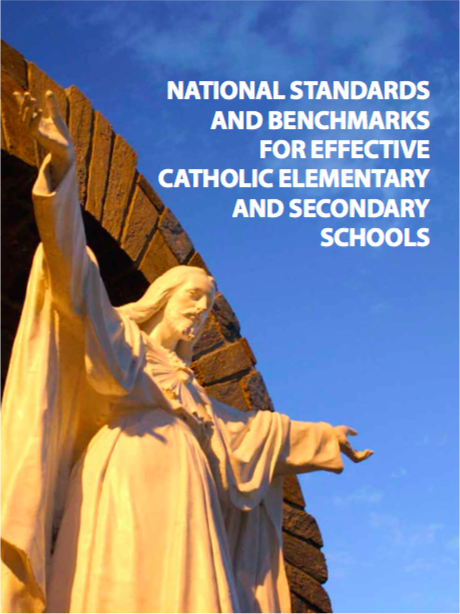
The landmark 2012 publication of the National Standards and Benchmarks for Effective Catholic Elementary and Secondary Schools was the result of a multi-year collaboration between the Barbara and Patrick Roche Center for Catholic Education at Boston College and the Greeley Center for Catholic Education at Loyola University Chicago. Copyright ownership of this document was transferred in 2020 from these centers to the National Catholic Education Association (NCEA). This document articulates a series of standards and benchmarks in four key areas: Mission and Catholic Identity, Governance and Leadership, Academic Excellence, and Operational Vitality. Catholic educators are encouraged to use this as a resource, as it provides a measure of accountability for the excellence and rigor, faith, and nurturance that have been the hallmark of Catholic education. More information on the National Standards and Benchmarks for Effective Catholic Elementary and Secondary Schools can currently be found at http://catholicschoolstandards.org.


